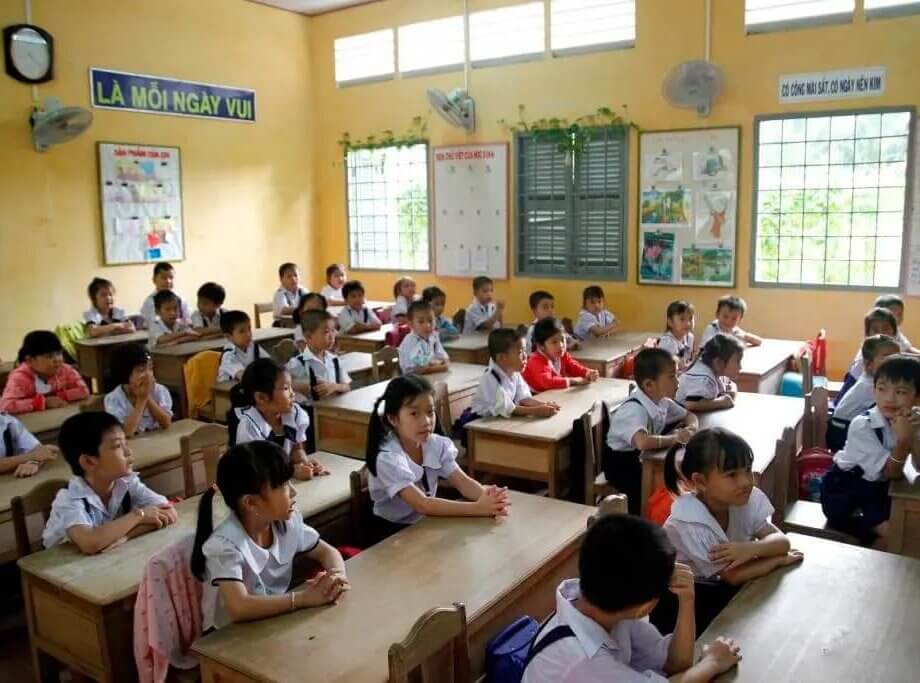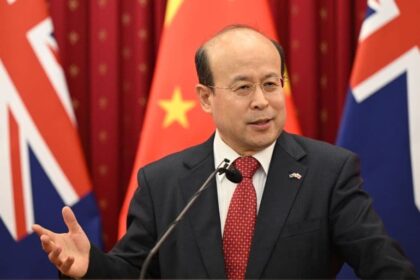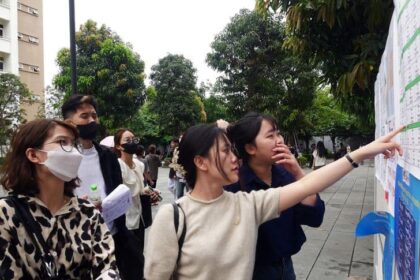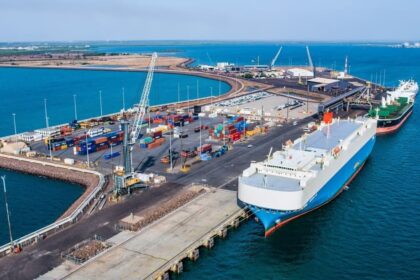Vietnam’s Primary Students Excel in Regional Education Assessment
Vietnamese elementary students have once again demonstrated exceptional academic performance, ranking among the top in Southeast Asia across mathematics, reading comprehension, and writing. This achievement is based on preliminary results from the 2024 Southeast Asia Primary Learning Metrics (SEA-PLM) program, a comprehensive regional assessment designed to evaluate the quality of primary education in participating countries. The findings, announced by Vietnam’s Ministry of Education and Training (MOET), highlight the country’s continued commitment to educational excellence and its ability to compete at the highest levels regionally and globally.
- Vietnam’s Primary Students Excel in Regional Education Assessment
- What is SEA-PLM and Why Does It Matter?
- Vietnam’s Consistent Excellence: 2019 and 2024 Results
- How Does Vietnam Compare Globally?
- What Drives Vietnam’s Educational Success?
- SEA-PLM’s Role in Shaping Education Policy
- Challenges and the Road Ahead
- Broader Implications for Southeast Asia
- In Summary
The SEA-PLM 2024 cycle included seven countries: Cambodia, Timor-Leste, Laos, Myanmar, Malaysia, the Philippines, and Vietnam. Vietnamese students were assessed through a national survey conducted at 152 elementary schools across 53 provinces and cities, ensuring a broad and representative sample. The official, detailed scores and rankings are expected to be released by the end of 2025, but early indications confirm Vietnam’s position as a regional leader in primary education.
What is SEA-PLM and Why Does It Matter?
The Southeast Asia Primary Learning Metrics (SEA-PLM) is a collaborative initiative led by the Southeast Asian Ministers of Education Organization (SEAMEO), UNICEF’s regional office, and the East Asia and Pacific Regional Bureau. Launched to provide a robust framework for assessing the learning outcomes of primary school students, SEA-PLM focuses on core competencies: literacy, numeracy, writing, and global citizenship. The program is conducted every five years and is the first regional assessment to use an ASEAN values-based model, measuring not only knowledge but also the ability to apply skills in practical contexts.
SEA-PLM’s significance lies in its ability to offer objective, comparable data across countries, helping policymakers and educators identify strengths and areas for improvement. The assessment also collects information from students, teachers, schools, and parents through a combination of tests and questionnaires, providing a holistic view of the educational environment.
By participating in SEA-PLM, countries like Vietnam can benchmark their education systems against regional peers, inform policy decisions, and develop targeted strategies to enhance learning outcomes. The program’s emphasis on practical application and writing competence across diverse writing systems ensures that the results are relevant and actionable for real-world educational challenges.
Vietnam’s Consistent Excellence: 2019 and 2024 Results
Vietnam’s strong performance in the 2024 SEA-PLM cycle is not an isolated event. The country has a track record of excellence, having also led the region in the inaugural 2019 cycle. In that assessment, Vietnamese elementary students achieved average scores of 341.55 in mathematics, 336.46 in reading, and 328.01 in writing—significantly above the regional averages of 304.79, 300, and 304.92, respectively. These results placed Vietnam firmly at the top among participating countries, which then included Cambodia, Laos, Malaysia, Myanmar, and the Philippines.
The 2024 cycle expanded participation to seven countries, yet preliminary findings indicate that Vietnamese students remain in the leading group across all three assessed competencies. This consistency underscores the effectiveness of Vietnam’s education policies and the dedication of its teachers and students.
How Does Vietnam Compare Globally?
Vietnam’s achievements in SEA-PLM align closely with its performance in other international assessments, most notably the Programme for International Student Assessment (PISA). PISA, conducted by the Organisation for Economic Co-operation and Development (OECD), evaluates the abilities of 15-year-old students worldwide in reading, mathematics, and science. In the 2022 PISA assessment, Vietnamese students ranked second in the ASEAN region after Singapore, placing 31st in mathematics, 35th in science, and 34th in reading among 81 countries and economies.
When adjusted for socio-economic factors, Vietnamese students’ mathematics scores are among the highest globally, trailing only behind education powerhouses such as Hong Kong (China), Taiwan, and South Korea. This remarkable performance is particularly notable given Vietnam’s lower average income compared to many other high-performing countries, highlighting the efficiency and equity of its education system.
What Drives Vietnam’s Educational Success?
Several factors contribute to Vietnam’s sustained educational achievements:
- Strong Policy Commitment: The Vietnamese government has consistently prioritized education as a cornerstone of national development. Investments in teacher training, curriculum reform, and infrastructure have created a supportive environment for learning.
- High Societal Value on Education: Education is deeply valued in Vietnamese culture, with families often making significant sacrifices to support their children’s academic pursuits. This cultural emphasis translates into high student motivation and parental involvement.
- Effective Teaching Practices: Vietnamese teachers are known for their dedication and professionalism. The education system emphasizes mastery of foundational skills, regular assessment, and targeted support for struggling students.
- Equitable Access: Vietnam has made significant strides in expanding access to education, particularly in rural and disadvantaged areas. Policies aimed at reducing disparities have helped ensure that high performance is not limited to urban centers.
These factors, combined with a rigorous curriculum and a focus on practical application, have enabled Vietnamese students to excel not only in regional assessments like SEA-PLM but also on the global stage.
SEA-PLM’s Role in Shaping Education Policy
SEA-PLM is more than just a test; it is a tool for continuous improvement. By providing detailed data on student learning outcomes, the program enables countries to:
- Monitor progress toward national education goals
- Identify gaps and disparities in learning
- Develop evidence-based policies and interventions
- Share best practices and foster regional cooperation
For Vietnam, participation in SEA-PLM offers an opportunity to objectively assess its education quality relative to neighboring countries, analyze current conditions, and propose targeted policies to enhance national education standards. It also supports Vietnam’s broader goal of integrating more deeply into the ASEAN community and contributing to the development of a common regional education framework.
Challenges and the Road Ahead
Despite its impressive achievements, Vietnam faces ongoing challenges in maintaining and further improving educational quality. Rapid economic development, urbanization, and demographic changes require the education system to adapt continuously. Ensuring that all students, regardless of background, have access to high-quality education remains a priority.
The COVID-19 pandemic has also posed significant challenges, disrupting learning and exacerbating inequalities. The 2024 SEA-PLM cycle is particularly important in this context, as it provides valuable data on learning recovery and the effectiveness of interventions implemented during and after the pandemic. According to the SEA-PLM website, the 2024 assessment plays a crucial role in supporting learning recovery, measuring educational outcomes, and fostering regional exchange on education policy in the post-pandemic era.
Vietnam’s education policymakers are using the insights gained from SEA-PLM and other assessments to guide reforms, invest in teacher development, and promote innovative teaching methods. The goal is not only to maintain high performance but also to ensure that all students are equipped with the skills needed for success in a rapidly changing world.
Broader Implications for Southeast Asia
Vietnam’s success in SEA-PLM has broader implications for the region. It demonstrates that high-quality education is achievable even in countries with limited resources, provided there is strong policy commitment, effective teaching, and a culture that values learning. Other Southeast Asian nations can draw lessons from Vietnam’s experience as they work to improve their own education systems.
SEA-PLM itself is a testament to the power of regional cooperation. By establishing common standards and facilitating the exchange of best practices, the program helps raise the bar for education across Southeast Asia. As more countries participate and the assessment evolves, it is likely to play an increasingly important role in shaping the future of education in the region.
In Summary
- Vietnamese elementary students continue to rank among the top in Southeast Asia in mathematics, reading, and writing, according to preliminary results from the 2024 SEA-PLM assessment.
- SEA-PLM is a regional initiative that provides objective data on student learning outcomes, helping countries monitor and improve education quality.
- Vietnam’s strong performance in SEA-PLM aligns with its achievements in global assessments like PISA, highlighting the effectiveness of its education system.
- Key factors driving Vietnam’s success include strong policy commitment, high societal value on education, effective teaching practices, and equitable access.
- SEA-PLM data informs education policy, supports learning recovery post-pandemic, and fosters regional cooperation.
- Vietnam’s experience offers valuable lessons for other Southeast Asian countries seeking to enhance their education systems.












